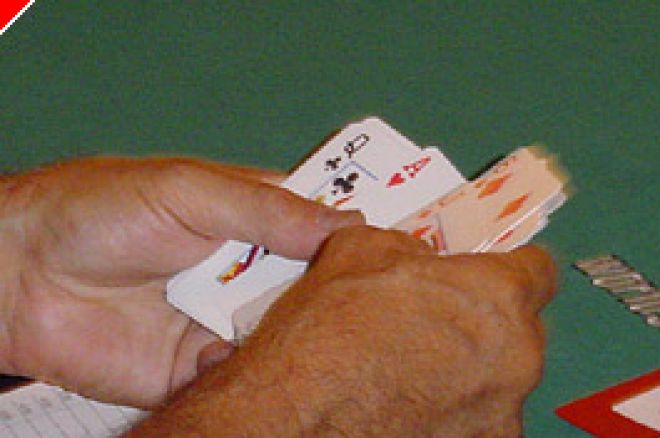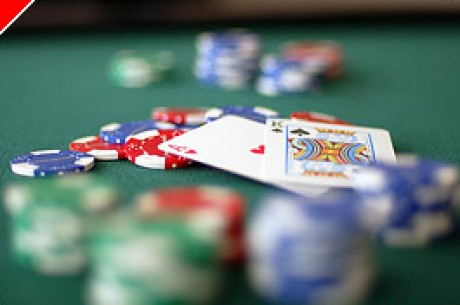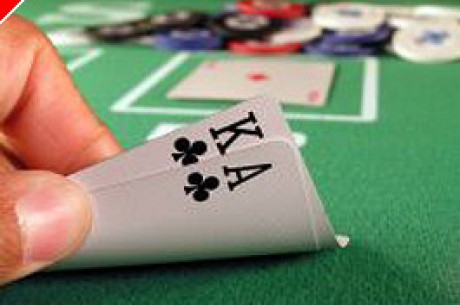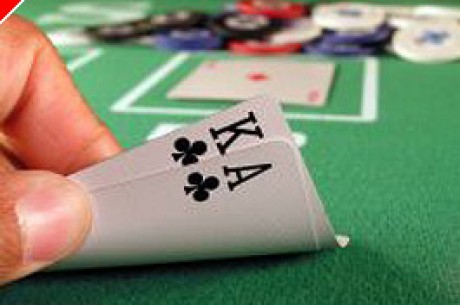Stud Poker Strategy: Saving Bets

In my last article I wrote about getting full value for your hand by betting it on the river. This doesn't mean that you will always call on the river. There are times when you can save a bet based on the betting action. Let me give you an example of that. After all, a bet saved is a bet earned.
Understand the important concept of a protected pot, meaning a pot that is protected from a bluff. It is, in other words, a pot that is unlikely to be bluffed at on the river.
A pot is generally considered protected if the bettor must convince more than one player to fold. If, for example, there is a pot with three or more players, and one of them bets, it is considered a protected pot, since it is unlikely that the player who bet is trying to steal the pot with a bluff �C since one of the two players is likely to call.
Here's an example of a hand from a recent game with a protected pot on the river.
I was at Foxwoods playing $10/20 stud with a $1.00 ante and a $3 forced bet. The forced bet to my right bet $3.00. He was a fairly straightforward, solid player. I completed to $10 with a wired pair of aces. Three players called me �C a king, held by a loose-passive player, a queen held by a drunk, loose fish and the initial bring-in, with a three.
On fourth street I failed to improve. No one else seemed to improve either. Unpaired, unsuited, and unconnected cards fell. The king was still high and checked. The queen and three checked as well. I bet my hand and got three callers. The player with the nine folded.
On fifth street, though I didn't improve, it was checked to me again and I bet, once again getting three callers. I wasn't please by all of the action, fearing that someone else would end up with a better hand. But I knew that I had no choice but to bet what I gauged to be the high hand.
On sixth street the player with the exposed king hit an exposed pair, now showing K-8-8. The player with the three, to my right, also paired his fourth-street card �C now showing 3-4-4.
The player with the king and pair of eights bet $20. The queen called, as did the player who just paired his four. I figured the players with pairs to have two pair (though it occurred to me that the player with the pair of eights might just have bet because he was high on board and thought he might take the pot) and the player with the queen to be on some kind of a draw. I wasn't sure, but I believed that if I hit a second pair I might be the high hand. Plus the pot was gigantic. So of course I called on sixth street and saw the river.
Sadly, the river did not bring me a second pair.
The player with the exposed pair of eights checked, as did the player with the Queen. This left the player to my right with the exposed pair of fours. He bet $20.
He was betting into a protected pot. There were three of us, one of whom was showing an exposed pair. It was likely that at least one of us would call this $20 bet to "keep him honest." Inversely, it would be highly unlikely that his bet would convince all three of us to fold.
So when he bet $20, even though the pot was enormous, I folded my singleton pair of aces. Had it been just he and I, I would have called. But since it was a protected pot, I conceded, nearly certain that he wasn't bluffing and must have a pair of aces beaten.
As it turned out, the player with the king folded. But the player with the exposed queen called; he just had a pair. But the player with the exposed pair of fours had a straight and won the pot.
I felt bad about not winning the hand. But I felt good that I had at least saved myself $20. At the end of the night, when I was down $40, I took consolation that I had limited my losses by 50% by dropping on the river with this hand.








